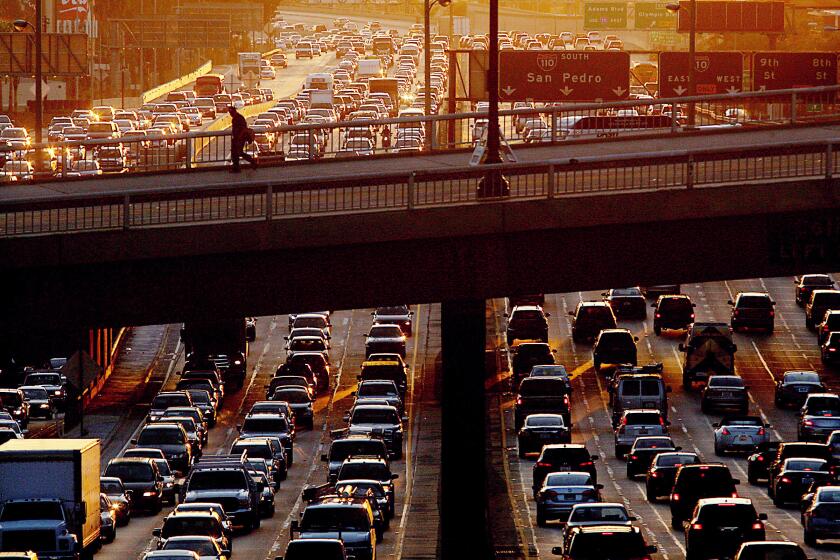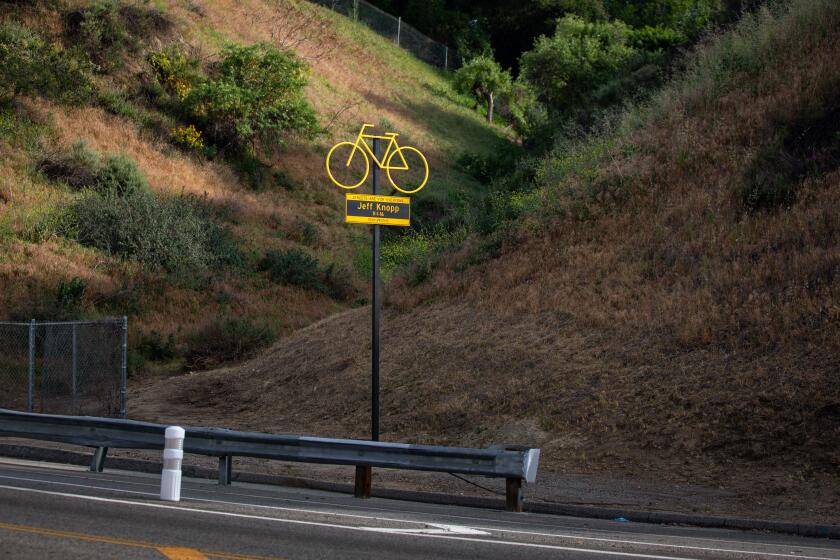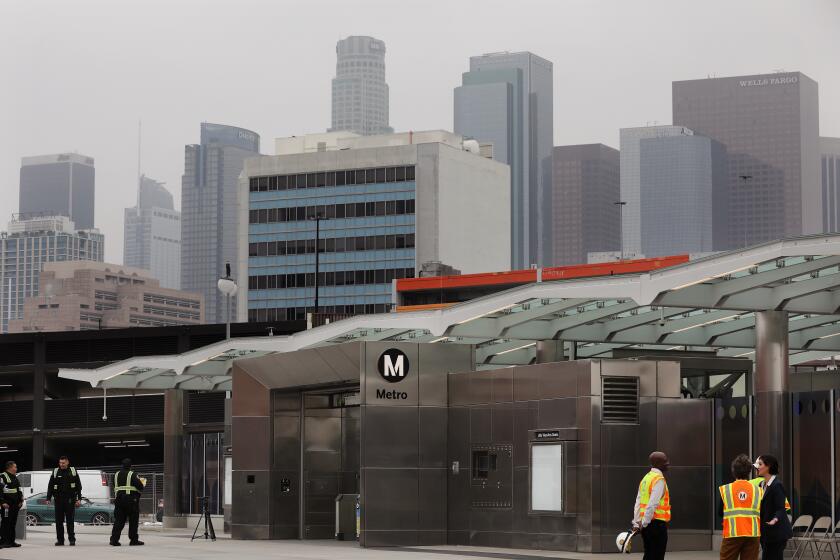20 years ago, the Arroyo Seco Parkway turned into a car-free party. Get ready for another
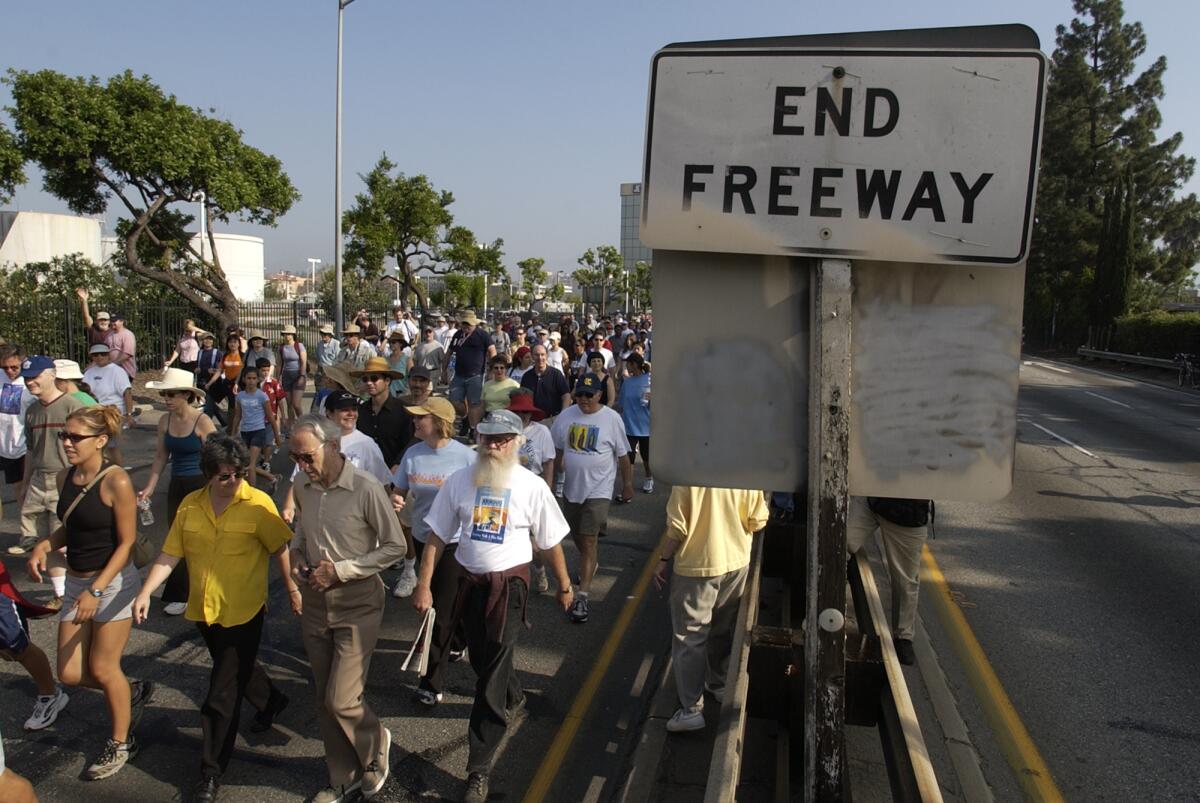
- Share via
For the first time in 20 years, a section of the Arroyo Seco Parkway, the West Coast’s oldest freeway, is set to close down for people to walk, bike, skate and run.
On Oct. 29, ArroyoFest will allow car-free exploration of six miles of the 110 Freeway connecting Los Angeles and Pasadena.
Two decades ago, the first ArroyoFest was ahead of its time for Southern California, said Wesley Reutimann, co-founder and special programs director at ActiveSGV, one of the event organizers.
In June 2003, seven years before the first CicLAvia “open streets” event, ArroyoFest shut down the Arroyo Seco Parkway for three hours, giving thousands of people the chance to tour the freeway as they never had before.
“I had a real urge to take the exit to the 5,” bicyclist Steve Edberg told The Times in an article covering that 2003 gathering. “If I had 200 or 300 riders with me, I think we could have taken over that one too.”
Metro is set to release a congestion pricing study this summer that looks at charging people to drive key freeways and roads.
The original ArroyoFest had been in the planning stages for 10 years before event organizers were able to persuade Caltrans and pull it off.
Twenty years later, Reutimann said, planning a revisit of the event has proved just as complicated.
“There are a lot of pieces that go into putting on an event like this,” he said. “It speaks volumes that the first one, they were able to successfully stage it in 2003.”
It’s a major undertaking involving various permit processes and agencies, including approval by the Pasadena City Council and a special event permit from Caltrans, according to Pasadena Now.
After years of planning, the return of ArroyoFest will offer many a new perspective on the freeway — and perhaps a glimpse at the original vision for the Arroyo Seco before it became one of Los Angeles’ most notoriously white-knuckle driving experiences.
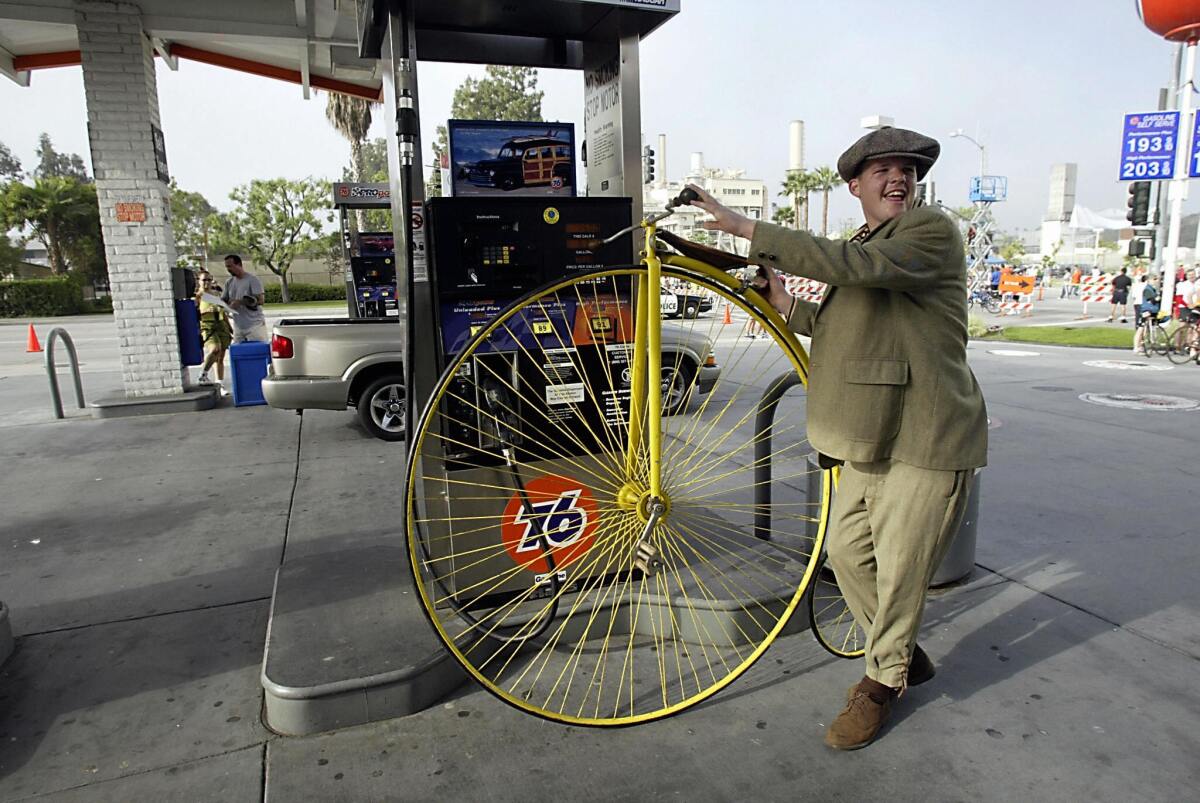
The Arroyo Seco Parkway was opened in 1940 and was built with the idea that it would be a meandering, green parkway that could accommodate about 27,000 vehicles a day, with a top speed of 45 mph.
Today, the parkway sees well north of 100,000 trips a day with people driving twice as fast as it was originally designed for. Its narrow lanes, small shoulders, and short entrance and exit ramps can make for a terrifying drive for anyone not used to it.
ArroyoFest, similar to open-streets events like CicLAvia and 626 Golden Streets, will bring a reprieve from all those fast-moving cars, if only for a few hours.
In fact, it represents a full-circle return for bicyclists on the busy L.A.-to-Pasadena traffic corridor.
Predating the Arroyo Seco Parkway was the California Cycleway. The first section of the cycleway opened in 1900 after a bicycle craze in the 1890s.
A portion of the cycleway was dismantled when the city of Pasadena needed the land for Central Park, and later the rest of the cycleway also came down, according to the Pasadena Museum of History. The cycleway’s right-of-way ended up becoming part of the Arroyo Seco Parkway, according to the Arroyo Seco Foundation.
BikeLA analyzed the 26 bicycle fatalities in 2022 and discovered that 85% of cyclist deaths happened on roads without bike lanes.
Several factors played into the decision to bring back ArroyoFest, Reutimann said. ActiveSGV met with the original organizers — including Occidental College faculty, Los Angeles residents and representatives of Caltrans — and they were supportive of revisiting the event.
ArroyoFest was originally going to return in 2020, but it was canceled because of the COVID-19 pandemic. Organizers started replanning the event two years ago.
This year’s 626 Golden Streets: ArroyoFest will be held from 7 a.m. to 2 p.m. Oct. 29. People will be free to go onto the Arroyo Seco Parkway from just north of the 5 Freeway to the Arroyo Seco’s terminus in Pasadena only for the first four hours. A portion of Mission Street in South Pasadena from the Metro station to Garfield Park will be open to ArroyoFest participants for the duration of the event.
The plan is to start closing down the parkway several hours before the event and reopen it by noon, Reutimann said.
The new Metro Regional Connector creates L.A. County’s first uninterrupted north-south and east-west train lines. Three new stations downtown are now open.
The event is free for attendees.
It will include three hubs near Metro stations along the route — Lincoln/Cypress, Southwest Museum and South Pasadena station — where attendees can enjoy musical performances, art activities and pop-ups. The hubs will also have bike repair stations and water refill stations.
On Monday, an exploratory event will allow bicyclists to preview the upcoming ArroyoFest and explore the Arroyo Seco bicycle path, though it won’t allow riders onto the freeway. The route is seven miles and one way only, so people can take the Metro back or bike if they wish.
More to Read
Sign up for Essential California
The most important California stories and recommendations in your inbox every morning.
You may occasionally receive promotional content from the Los Angeles Times.
